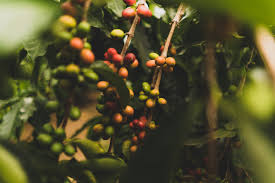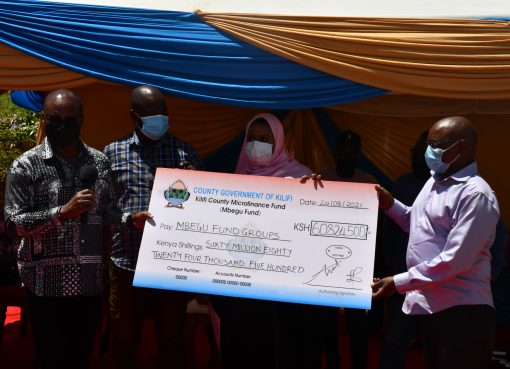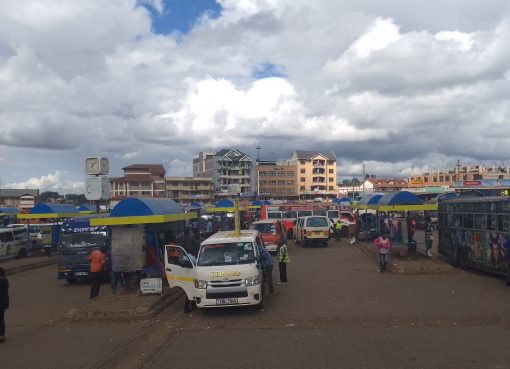Apart from soda, coffee is one of the world’s beloved drinks and the country has numerous coffee shops which sell it at a premium.
A cup of coffee in most restaurants cost Sh 200 and above, while tea which is grown in large scale in the country costs as little as Sh 10 per cup.
Before the Coffee Board of Kenya was disbanded, it had coffee shops in all major towns including Nakuru. The coffee shops were situated in strategic areas.
However, despite tea being a popular drink, Kenya Tea Development Authority (KTDA) has never achieved the high marketing and visibility of the drink.
Due to coffee’s popularity in the country, farmers who had abandoned the crop have started reviving it because they have realized that they can sell it directly to the international market.
But in Nakuru County, coffee is mainly grown by small scale farmers, apart from the large scale Patel Farm in Solai, which has branded their coffee and exports it to European countries.
County Agricultural Executive Officer, Dr. Immaculate Maina, said they were doing everything possible to promote coffee farming and in 2018, farmers were provided with 40, 000 free seedlings.
She added that Shs2 million has been budgeted for 2019’s annual allocations to upgrade pulping machines at Mutungati Farmers’ Cooperative Society.
“Apart from financial and seedling support, we want to improve the production per coffee bush because currently, the two kilogramme they are producing is below par; since a well-tended crop would produce as high as twenty kilogram,’’ she said.
She regretted that the farmers who know much about the growing of coffee were aged and some young farmers have never grown it, and they want to encourage them to diversify their farming apart from concentrating on dairy and vegetable farming alone.
Dr. Maina said it was lamentable that coffee farming was ignored by past governments, which led to the disillusionment of farmers, who went as far as uprooting the crop.
But a number of small scale farmers who had a sentimental attachment to their coffee bushes left them unattended to, and those are the farmers they are using to revive and popularize the crop.
She said the volcanic soil in the county was ideal for coffee growing and the world’s favourite Arabica coffee does extremely well in the county.
She added that the unique soils and highland climate contributes to the rich aroma and that is the reason the world seeks Kenyan coffee for blending.
Coffee Farming in Kenya has a long history, and according to County Crop’s Officer Fredrick Owino, the crop was introduced in the country by missionaries in the year 1896.
He added that despite being a preserve of small-scale farmers, it was still the country’s fourth leading foreign exchange earner after tourism, tea and horticulture.
Owino said the colonial laws which made it illegal for farmers to uproot the crop without express permission from the government has contributed a great deal to the many surviving bushes in the elderly farmers’ farms.
“A number of the elderly farmers took long to realize that it was no longer illegal to uproot the crop, and so they kept it for fear of being prosecuted,” he added.
However, he said, coffee farming had a lot of potential in the county, and currently, there are nine washing stations where farmers take their cherries for processing.
But he added they were doing everything possible to ensure that farmers embrace the crop because they are likely to earn good money.
Currently, the crop fetches three dollars per kilogramme in the global market, and there is a possibility of price increase due to high demands.
However, a long time coffee farmer Jotham Kamau said the coffee sector had, for a long time, attracted a lot of negative publicity.
“Coffee cartels began in the 1970s when Nairobi and Mombasa tycoons smuggled Ugandan coffee into the country. Christened the “Chepkube coffee boom,” the Ugandan ‘black gold’ made millionaires overnight. Later the cartels assumed control of the supply of farm inputs limiting farmers’ access,’’ he said.
The cartels would later vandalize coffee co-operatives’ assets and steal coffee
He added that weighing tills were manipulated to rob farmers of millions of tones. Consequently, farmers were unable to service their debts.
Quality declined fetching low value in the market. Lack of farm inputs led to poor production. Small-scale coffee farming died off.
Coffee farming was deserted and uptake of alternative crops became noticeable. There were no economies of scale for established coffee farmers since most co-operatives operated below capacity.
Kamau said numerous proposals that farmers get their timely payments for their coffee failed to take off.
He added, a presidential task force of 2016 recommended regular payments, subsidized farm inputs, writing off coffee debts and change of marketing strategies.
However, he said for coffee to be revived, there was the need for a policy shift along production, value addition and marketing chains.
He asked the county leadership to revive the cooperative unions and promote cottage industry for value addition.
He appealed to the government to end the many disappointments farmers have had to go through when cash crops are left to cartels who steal from farmers, and after some time the same farmers without any compensation, are urged to revive the crops.
By Veronica Bosibori
Coffee, the Worlds’ Favorite Drink




